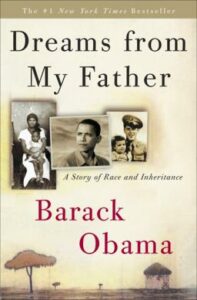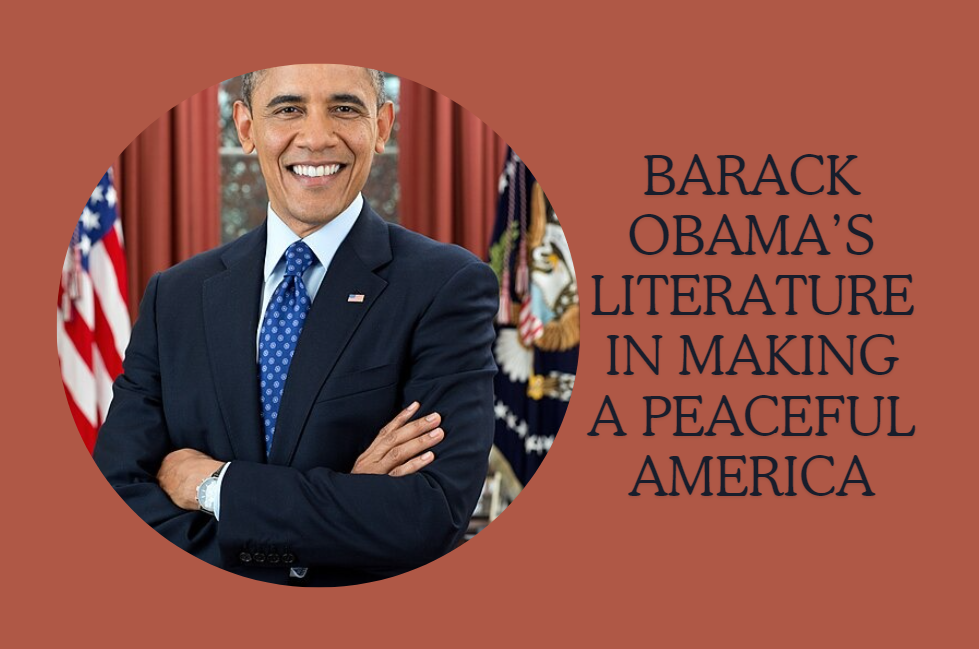Barack Obama’s Literature is greatly valued as it plays a great part in making a peaceful America. Barack Obama is a former U.S. president and a skilled writer. He has written four books, including a memoir, a political manifesto, and a personal account of his presidency. He has also penned essays, articles, and letters on various topics, such as race, democracy, climate change, and global affairs.
Arguments for Barack Obama’s Literature
Some people may believe that Barack Obama‘s writings make America peaceful because they show his vision of a perfect union where people of different backgrounds and beliefs can live and work together. They may also respect his eloquence, honesty, and optimism, which motivate hope and trust in the future. They may also value his readiness to tackle complex and controversial issues, seek common ground, and compromise.
Commitment to democratic values:
Barack Obama’s writings demonstrate his commitment to the ideals of democracy, justice, and equality, which are the foundations of a peaceful society. He writes about the importance of civic engagement, social movements, and public service and how they can shape the nation’s destiny.
He also writes about the challenges and opportunities of diversity and how America can benefit from the contributions of people from different backgrounds and cultures. He advocates for a respectful and constructive dialogue across political and ideological divides and for finding shared values and interests that can unite the country.
He also writes about the role of America in the world and how it can promote peace and cooperation through diplomacy, development, and multilateralism. He cites examples of historical figures and events that exemplify these principles and how they have influenced his worldview and decisions. Some of his writings that illustrate these themes are The Audacity of Hope, Dreams from My Father, and The Nobel Peace Prize Lecture.
Personal experiences and struggles:
Barack Obama’s writings reflect his personal experiences and struggles, which make him relatable and empathetic to the people he serves. He writes about his family history, his childhood, his education, his career, his marriage, his fatherhood, and his faith. He writes about his successes and failures, joys and sorrows, hopes and fears.
He writes about his identity as a biracial, multicultural, and global citizen and how it has shaped his perspective and values. He writes about his mentors, role models, friends, allies, adversaries, and critics. He writes about his challenges and achievements as a community organizer, a lawyer, a professor, a senator, and a president.
He writes about the issues and policies he cares about and the people and stories inspiring him. He writes with honesty, humility, and humor, and he acknowledges his mistakes and limitations. He writes with passion, conviction, and courage and expresses his vision and aspirations. His writings illustrate these themes: A Promised Land, Of Thee I Sing, and The President’s Devotional.
Arguments against Barack Obama’s Literature
However, some people may disagree with this view and claim that Barack Obama’s writings do not make America peaceful because they expose his ideological biases, political agendas, and personal flaws.
They may also fault his rhetoric, style, and tone, which they see as arrogant, condescending, or naive. They may also question his arguments, facts, and sources and accuse him of being dishonest, hypocritical, or inconsistent.
Ideological biases and political agendas:
Some people may think that Barack Obama’s writings do not make America peaceful because they show his ideological biases and political agendas, which they do not agree with or support. They may think that his writings are too liberal, too progressive, too socialist, or too radical and that they endorse policies and values that are detrimental to the country.
They may think that his writings are too partisan, too divisive, too polarizing, or too elitist and that they isolate or vilify those who have different views or interests. They may think that his writings are too pragmatic, compromising, appeasing, or weak and neglect or undermine the national interest or security.
They may believe that his writings are too idealistic, unrealistic, naive, or romantic and disregard or downplay the challenges and threats the country faces. Some examples of his essays that may provoke these criticisms are The Audacity of Hope, Change We Can Believe In, and The Cairo Speech.
Rhetoric, style, and tone:
Some people may think that Barack Obama’s writings do not make America peaceful because they dislike his rhetoric, style, and tone, which they find annoying. They may believe that his writings could be more concise, concise, abstract, and academic and need more simplicity, clarity, substance, or evidence.
They may think that his essays are too rhetorical, persuasive, deceptive, or manipulative and use tricks, devices, or techniques to sway or mislead the audience.
They may think that his writings are too arrogant, too condescending, too patronizing, or too smug and that they show a sense of superiority, entitlement, or disdain. They may think that his writings are too humble, apologetic, self-deprecating, or modest and show a lack of confidence, conviction, or courage. Some examples of his essays that may provoke these criticisms are Dreams from My Father, The Nobel Peace Prize Lecture, and A Promised Land.
Arguments, facts, and sources:
Some people may think that Barack Obama’s writings do not make America peaceful because they doubt his arguments, facts, and sources, which they find questionable or flawed. They may think that his writings are too subjective, personal, anecdotal, or emotional and rely on his own experiences, opinions, feelings, or beliefs.
They may think that his writings are too objective, impersonal, detached, or rational and ignore or neglect the human, moral, or spiritual aspects of the issues. They may think that his writings are too selective, too biased, too distorted, or too misleading and that they cherry-pick, omit, twist, or falsify the information or evidence.
They may think that his writings are too inconsistent, contradictory, paradoxical, or hypocritical and that they change, reverse, or violate his positions or principles. They may think that his writings are too dishonest, untruthful, inaccurate, or erroneous and that they lie, deceive, misinform, or misrepresent the facts or reality. Some examples of his writings that may provoke these criticisms are The Audacity of Hope, The Cairo Speech, and A Promised Land.
A Detailed Look Into Barack Obama’s Works
Barack Obama, the 44th President of the United States, has penned several books that offer a profound understanding of his life, his time in office, and his perspectives on various matters.
Here’s a brief overview of his significant works and the ideologies they express:
A Promised Land: This autobiography chronicles Obama’s early political journey and his presidency, demonstrating his faith in America’s potential and its citizens.
Dreams from My Father: A Story of Race and Inheritance: This autobiography delves into racial identity and revolves around the life lessons imparted by Obama’s father. It showcases his grasp of the intricate issues of race and identity.

The Audacity of Hope: Thoughts on Reclaiming the American Dream: This book delineates Obama’s political and spiritual convictions and his views on diverse facets of American culture. It mirrors his optimism and his faith in the American Dream.
Of Thee, I Sing A Letter to My Daughters: This children’s book pays homage to thirteen trailblazing Americans and the principles that have molded the nation. It exhibits his belief in the impact of individual contributions to the country.
Renegades: Born in the USA: This compilation of dialogues between Obama and musician Bruce Springsteen underscores his belief in the power of conversation and shared experiences.
Barack Obama in His Own Words: This book of quotations allows readers to hear his thoughts and ideas directly, offering a lucid picture of his beliefs and values.
Farewell Speeches: This book comprises the farewell speeches of Barack Obama and Michelle Obama, reflecting their aspirations for America’s future.
Obama’s writings communicate his comprehension of America’s complexities and vision for its future.
About Obama’s Influence In American Politics
Barack Obama, the first African American to hold the office of President in the United States, left a significant imprint on the nation’s political landscape. His presidency is distinguished by its stability, and his status as the first African-American President is a historic milestone.
Obama’s presidential campaign was built on the promise of change. His tenure saw the United States undergo significant social, demographic, and technological transformations. His election improved America’s reputation internationally, particularly in Europe.
Obama achieved major accomplishments: The Affordable Care Act, the Paris Climate Accord, and DACA. However, Republican control of the presidency and Congress in 2017 threatened or reversed these achievements.
Despite the economic crisis 2009, the United States avoided a second Great Depression. The U.S. economy has significantly recovered from the aftermath of the Great Recession.
Obama’s enduring influence on American society may be evident in the averted crises. His approval rating among the American public increased during his second term, peaking at around 60 percent in his final months in office.
In a survey of 91 presidential scholars, Obama ranked 12th among all US presidents in terms of overall performance.
However, the country continues to face economic challenges. The middle class continued to shrink during Obama’s presidency, and income inequality reached its highest level since 1928.
Ethical Aspects in Barack Obama’s Literature
Barack Obama’s written works offer a deep insight into his ethical viewpoints and dedication to fairness. His writings frequently stress the importance of standing up against oppression. He also underscores how right is rooted in fundamental values such as equality, freedom, and unity.
In his autobiographical book, “Dreams from My Father,” Obama delves into the idea of black nationalism and its feasibility. This demonstrates his readiness to tackle intricate and potentially contentious subjects in a considerate and detailed manner.
Obama’s speeches also reveal his ethical position. For example, in his speech “A Perfect Union,” he uses emotional, honest, and logical appeals to connect with and persuade his audience.
Furthermore, his written works reflect a shift from the radical forms of African American literature written during the Black Arts, Black Power, and Black Studies Movements of the 1960s and 1970s towards more reconciliatory forms.
In summary, Obama’s written works mirror his ethical principles and his dream of a fairer and more equal society.
Contradictory Aspects in Barack Obama’s Literature
Barack Obama’s written works offer a multifaceted and detailed perspective of his political and personal ideologies, which can sometimes seem contradictory.
For example, his memoir “Dreams from My Father” is highly acclaimed for its literary depth and quality. However, his later books “The Audacity of Hope” and “Change We Can Believe In” have been critiqued for compromising literary value for political gain. This change in style and content could contradict Obama’s literary ambitions and the necessities of his political career.
Furthermore, Obama’s written works reflect a departure from the radical forms of African American literature prevalent during the Black Arts, Black Power, and Black Studies Movements of the 1960s and 1970s and a shift towards more reconciliatory forms. This could be a contradiction depending on one’s viewpoint on these movements and their relevance to modern African-American literature.
There has also been a debate over Obama’s presidential library, which deviates from the conventional model of presidential libraries. Unlike other presidential libraries managed by the National Archives and Records Administration, a federal agency, the Obama Presidential Center is governed by the Obama Foundation, a private nonprofit.
This has sparked concerns about potential partisan interests influencing what is intended to be a public archive.
In conclusion, while Obama’s written works provide valuable insights into his beliefs and values, they also present certain contradictions that reflect the complexities of his political and personal journey.
Finale Words On Our Topic
Therefore, whether Barack Obama’s writings make America peaceful is complex and may depend on one’s perspective, values, and preferences. There is no definitive answer, but rather a range of opinions and interpretations.
One way to explore this question is to read, compare, and contrast some of his writings with other sources and viewpoints. This may help to develop a more informed and nuanced understanding of his ideas and influence.

